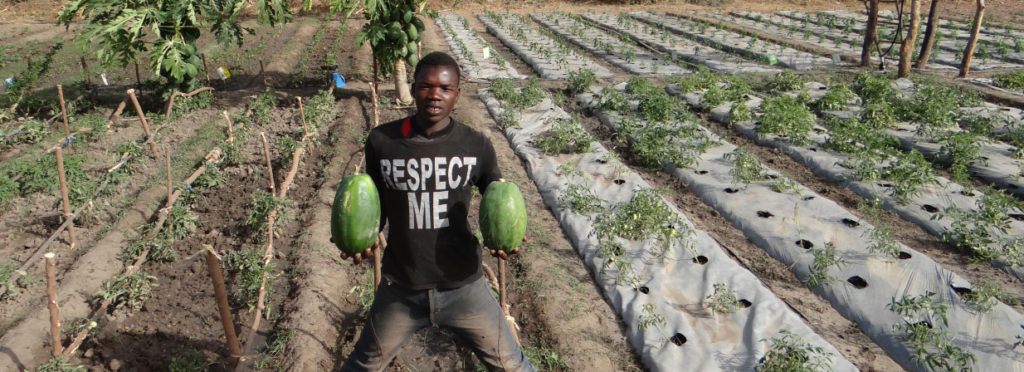
Thompson Ogunsanmi, 2SCALE country agribusiness advisor in Nigeria, has a background in agronomy and 15 years of field experience in entrepreneurship and value chain development. Nigeria needs to feed its growing cities, which is a huge opportunity for young “agri-preneurs.” But despite many comparative advantages, youth are looking elsewhere. Below, Thompson reflects on why it is so difficult to attract youth to agribusiness and explains how 2SCALE is dealing with this issue.

1. Stop linking poverty with agribusiness
Everybody is talking about involving youth in agriculture; however, young people associate agriculture with poverty, which discourages them. Youth want to work in an enterprise that is going to give them results based on the effort they put in. But based on their experiences, 9 out of 10 youth are running away from farming.
In my opinion, poverty should not be linked to agriculture. Poverty also exists in other sectors of the economy in Nigeria. If you look into the mining sector, you see a lot of people working hard and they are not earning as much as the farmers. So I think the primary way to attract youth to agribusiness is to dissociate agriculture and poverty.
2. Make financing accessible.
The second issue is access to financing, so youth can invest in agriculture as a business. Growing 1 hectare(ha) of produce is more profitable than working in a bank, as Pam Dung’s story has shown. But few youths have the basic funds necessary to invest in drip irrigation or even buy quality inputs to start their business.
Within and outside 2SCALE, there are a lot of opportunities. Many youth are being pre-financed to establish themselves as agri-preneurs. For example, in the soybean partnership, 2SCALE could connect the Nigeria Bank of Agriculture with soybean agri-preneurs whose business plan was funded for 8 million alongside a processing firm. The bank would be responsive because the market for soybean is huge. And because 2SCALE has trained them and developed the skills they need, they can double the yield. We could also connect these youths with business services that provide harvesters and planters, which could radically change the way they see farming.
3. Build youth skills on ICT.
When attracting youth in agribusiness, we should use their natural skills in information and communication technology (ICT) as a means to build networks and access to timely information. These young agri-preneurs are very curious and strategic in getting information about pricing. They use many platforms to network, share information about market prices from one location to another, and develop knowledge about best farming practices. These tools help them negotiate fair prices for their produce. In the vegetable partnership developed with East West-Seed International, we could see young chili pepper farmers using their network to negotiate prices five times higher than what other farmers are getting.

4. Create an enabling business environment.
Additionally, the government can and should create an enabling business environment. There is the issue of the double or triple taxation payment. Currently, different institutions collect taxes from farmers, reducing their performance and discouraging them from further investment in agribusiness. Having a single tax would make agriculture more attractive for youth.
The government should create a network for youth to move their produce from rural areas to the town, and should also assist by evaluating several mounted check points that increase the cost of doing business. Issues such as very high interest rates on credit and lack of tailor-made loans for young women must be considered. The youth are asking the government to create and implement an environment to drive their vitality.




